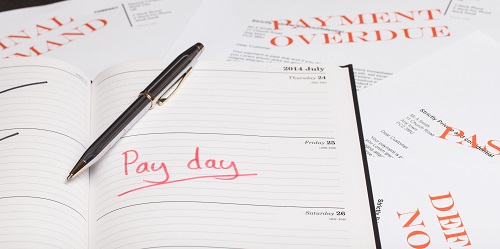Why we need to do more to tackle financial vulnerability

The report makes stark reading. Other worrying findings for me were:-
- People showing characteristics of potential vulnerability are twice as likely to have used high-cost credit in the last 12 months as other UK adults
- 5 million adults have been turned down for a financial product in the last two years
- 18-24 year olds rate themselves as the least confident and knowledgeable of all UK adults about managing money and financial matters
- This connected generation of 18-24 year olds are the most dissatisfied with their current financial circumstances
Poor knowledge and lack of engagement in financial products makes this situation worse. Financial products and business models have remained stale and the information provided to help people has been even more dull. This is a huge barrier to better educating people on their personal finances.
The financial services sector have a clear duty to the UK public to tackle this and improving baseline financial capability must be a government priority through access to financial education. The employer also can play an important role - the House of Lords Select Committee on Financial Exclusion published a report highlighting how employers have a key role in countering financial exclusion amongst the UK's 30 million strong workforce.
It's important that we all understand that this financial problem has major societal impact, as my work with StepChange Debt Charity has shown. In the first half of 2017, 326,639 people contacted StepChange Debt Charity for help and support with their problem debt. This equates to 1 person contacting StepChange every 48 seconds. Please just think of that. This could be a family member, a friend, a colleague or one of your employees.
People are resorting to using credit cards and payday loans to live from pay check to pay check with our own research showing that half of all people in the UK are borrowing to pay for the basics (rent, food, utility bills). Payday lenders and high interest credit providers continue to spend outrageous amounts of money in advertising to put themselves in front of your friends, colleagues, employees as the solution to getting fast cash. This is wrong - I believe that access to fairer finance should be a basic right rather than a privilege.
A need or action
The FCA and Government need to address these findings before we see even greater social impact. Greater access to more affordable forms of credit needs to be a priority. A decade on, high street banks still remain conservative and risk-averse and it is clear that moral duty alone won't be enough for traditional financial services to step into the void that exists.
This is where the role of Fintech businesses can really make a difference - I don't just mean a difference to their valuation, but a real difference to society. We owe this to the UK. We can address many of these challenges through better use of data, risk mitigation through salary deduction and increasing the role of the employer in provision of financial education. I believe it is our social duty to provide fairer access to finance - the UK needs it.
Monica Kalia is co-founder of Neyber and a trustee of StepChange Debt Charity.
This article was provided by Neyber.





